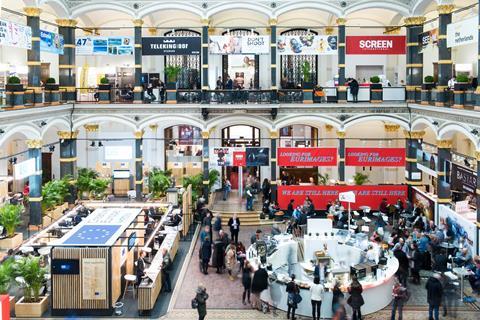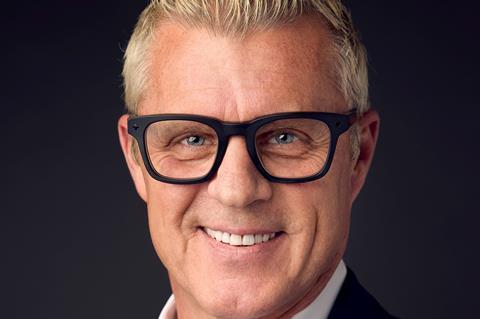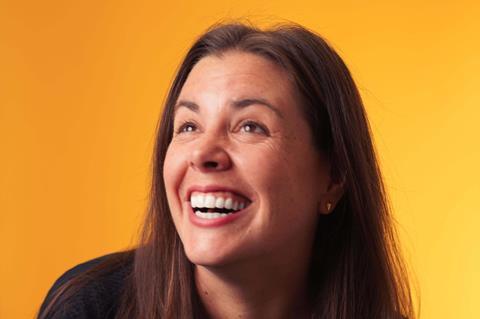The Los Angeles wildfires have impacted packaging and the US sales landscape has changed in recent months. But for many, EFM is a perfect market to get business done.

The Los Angeles contingent at the European Film Market (EFM) arrives after a tragic start to the year that will have disrupted the business of packaging. However, this is a resilient crowd that has bounced back from Covid and the Hollywood strikes, and the feeling is the Los Angeles wildfires will have delayed, but definitely not cancelled, preparations for a market the Americans value highly.
Donald Trump’s return to the White House will also be a talking point as sellers discover how the international community reacts to any tariffs on China, Canada and Mexico (the latter two suspended as Screen International went to press). Eight years ago US sales agents reported pushback from Chinese buyers, who met the then-US president’s tariffs by reducing their quota of US films.
There have been significant changes in the sales space since last year’s American Film Market (AFM). Patrick Wachsberger, the sales guru who led Summit and Lionsgate for years, is coming back with sales joint venture 193 in partnership with Legendary Entertainment, which is expected to launch formally on the Croisette.

As some stalwarts return, others have left or changed their profile. Cinema Management Group founder Edward Noeltner has filed for Chapter 7 voluntary bankruptcy in order to devote more time to his family, and will be deeply missed after building a fine roster of quality independent animation and horror. And Nicolas Chartier’s Voltage Pictures has acquired a majority stake in Brian O’Shea’s The Exchange as it expands operations.
One big sales title that was already known at time of writing was Together, Michael Shanks’ body horror that was the outstanding commercial prospect in Sundance and was snapped up by Neon in a $17m worldwide deal. Sales head Kristen Figeroid will begin talks with international buyers, just as she did a year ago after Neon acquired Steven Soderbergh’s Sundance 2024 ghost story Presence.
WME Independent represented the filmmakers in that deal in Park City and the agency’s co-head of international Zach Glueck notes a big deal on the eve of Berlin is “good for the whole business”, adding that a couple more Sundance projects from the agency may also make the trip to Berlin. Whether they will stay unsold from Sundance or arrive with new international sellers attached remains to be seen.

While change is common in this business, what remains constant is the need to be forensic about sourcing what buyers want. “If you’re not making the right type of content, it’s going to be a heavy lift every time,” says Katie Irwin, WME Independent co-head of international. “Whether it’s a horror, a big commercial, fun actioner or an incredibly moving tear-jerker, someone on the team has to fall in love with it — and the team has to understand the vision and the economics have to work alongside it.”
“We consider the EFM to be the opening market of the year,” says Todd Olsson, Highland Film Group president of international sales. “We tend to have between three and five good titles that will go at the end of the first quarter into the second quarter of this year. Historically, Berlin’s been a good market.”
Highland’s known slate at time of writing included Martin Campbell’s action thriller Dedication with Daisy Ridley, action thriller Protector starring Milla Jovovich, and the debut market screening of sci-fi thriller The Astronaut starring Kate Mara and Laurence Fishburne ahead of the world premiere at SXSW.
“We are getting back to semi-normalcy after the strike,” notes Olsson. “There’s a lot of talent that are open to doing more independent work at the moment because the studio slates have trimmed down.
“You can’t produce anything anymore that would have been considered a programmer in the old days, when you would just feed it into TV and [buyers] wanted lots of those. It’s not like that anymore,” continues the Highland executive. “It’s challenging when you have projects that just aren’t original or interesting, so we’re on the hunt for strong quality. We’re working with better screenwriters, better producers, elevated elements all round.”
Olsson points to another significant trend. “A big story across Europe now is that free TV is in freefall. There’s not that support [that buyers enjoyed when they could sell a feature onto free-TV platforms] and there’s only a few that have made that shift early on into AVoD. It’ll take somewhere like three to five years for AVoD to take a foothold.”
Once AVoD becomes the new free TV, the picture will become clearer.
WME Independent’s Irwin agrees there is “a rigorous and prolonged morphing of what distribution pipelines look like”. She adds: “AVoD is being monetised in new ways and those numbers aren’t fully making up the gap, and so you’re seeing both different types of content and different revenue pipelines being explored.”
Variations worldwide
The challenge remains to understand buyers’ needs across a wide number of territories that are not uniform. “The thing that’s tricky on the international sales side,” counsels Irwin, “is it’s so different and unique in each territory or region — the challenges they’re facing, their taste, for all sorts of reasons. Trying to please all of those varying groups with their varying needs is a complicated equation to solve when we’re figuring out what to bring to market.”

Still, buyers remain hungry for strong visions with clear execution and clear marketing hooks. Last year’s EFM produced several standout deals led by Sony Pictures in a worldwide deal in the $50m range for Kogonada’s Margot Robbie-Colin Farrell fantasy romance A Big Bold Beautiful Journey. The proof of the pudding will be in the release, which Sony has scheduled for May 9 in the US.
Attendees will be looking for more of the same in Berlin, where less noise can be a blessing even while some prefer the glamour of Cannes and the avalanche of big-ticket packages.
“Historically the EFM has been a good opportunity for business for us, going back years,” says WME’s Glueck. “I’ve heard that some people are very mixed on it. It’s a little bit quieter in the market compared to Cannes and it doesn’t have the same sort of distraction. So, while the overall commerce is probably smaller than Cannes dollar-for-dollar, when you come with a good title, Berlin is a very efficient place to do business with buyers.
“When you come with something they want, because there’s a little less distraction, you do great business quickly.”

























No comments yet